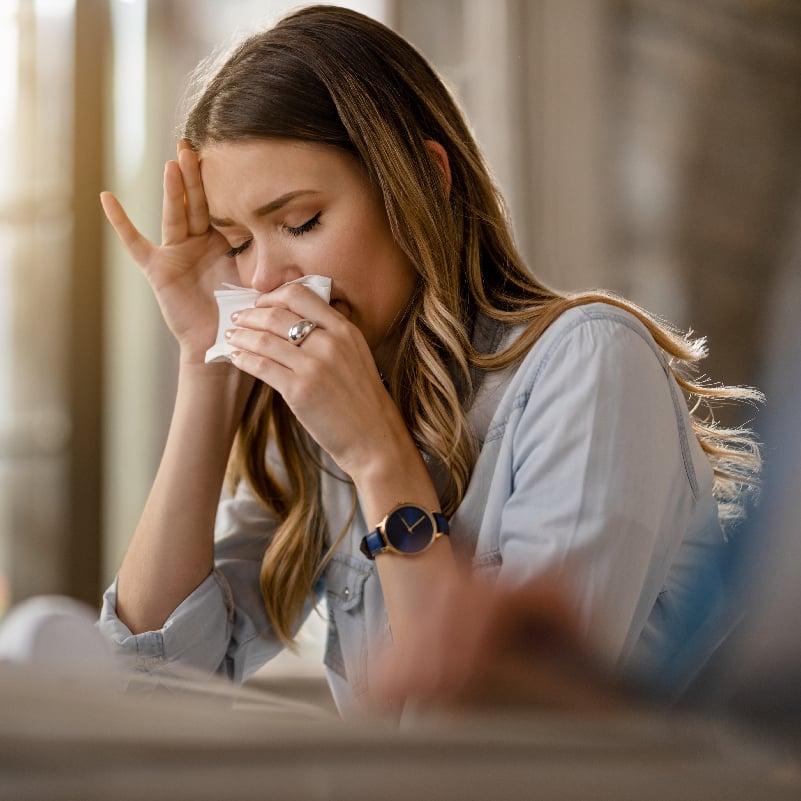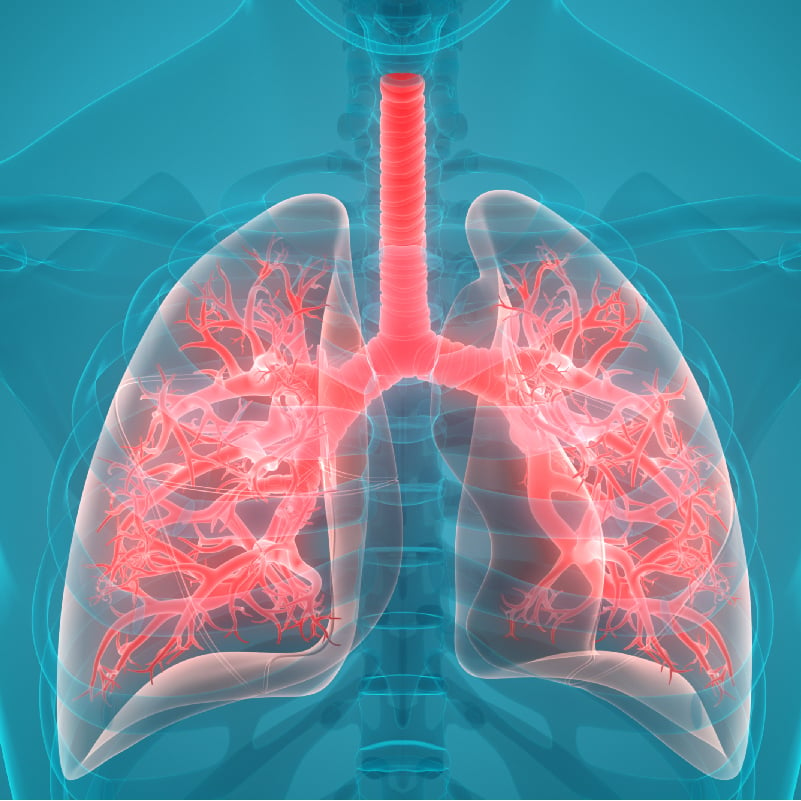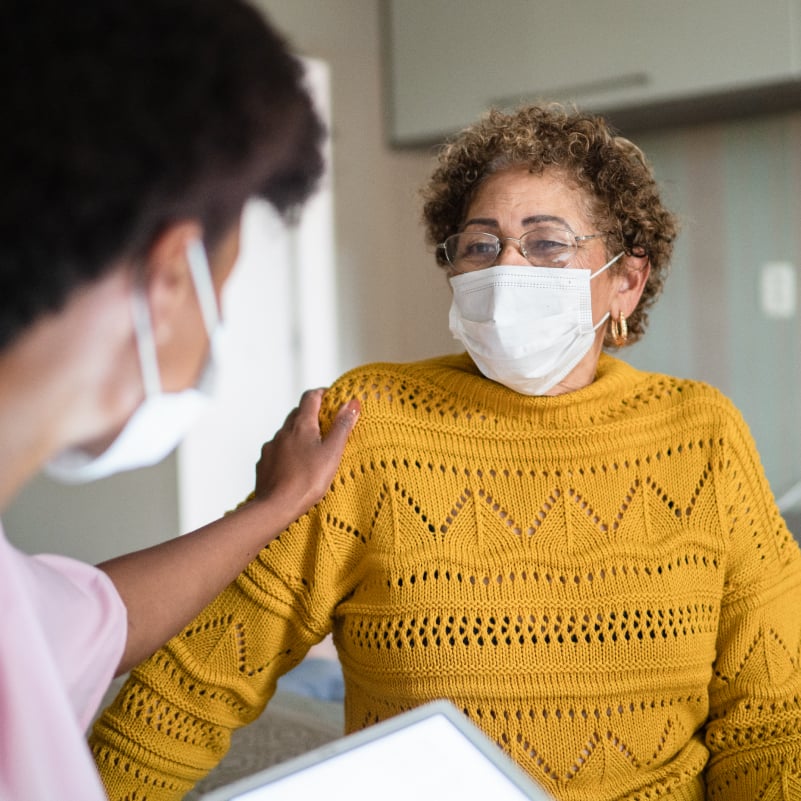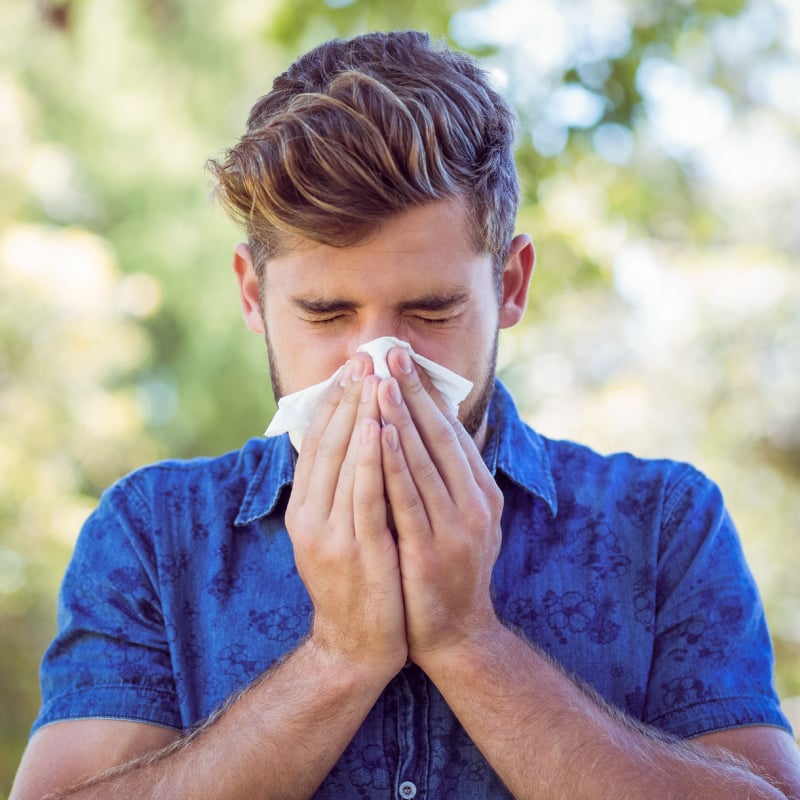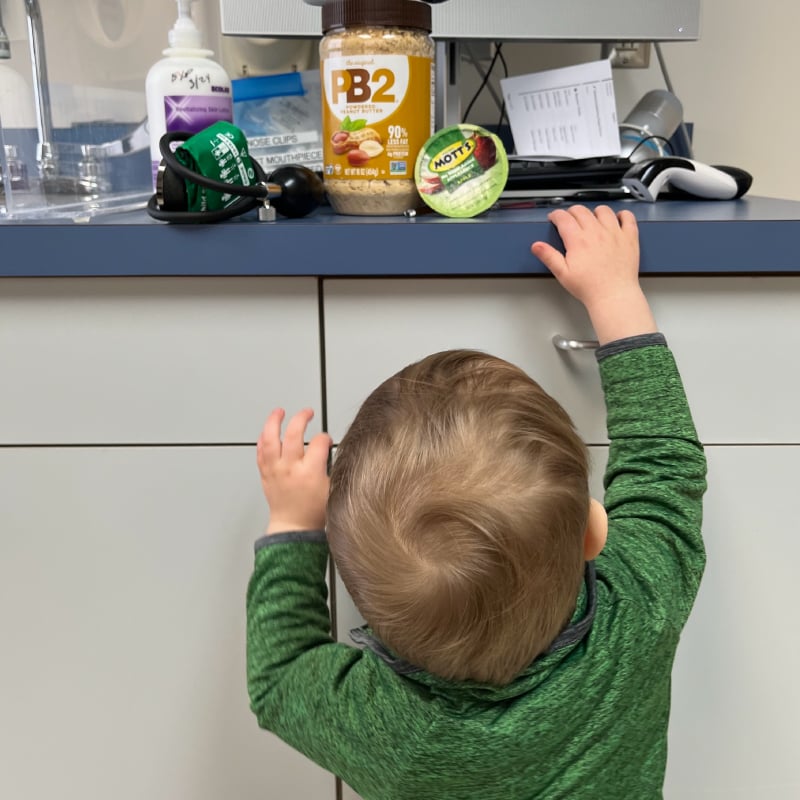Oral food challenges are considered the gold standard of food allergy diagnostic tests, and these highly accurate tests are performed every day by the allergists at Rochester Regional Health.
Sometimes, blood and skin prick tests don't offer conclusive results, and that's where oral food challenges shine. They should always be performed by an experienced allergist at a medical facility with the appropriate medications and equipment because they can cause serious allergic reactions. When handled appropriately, they are safe and provide the clearest results.
With the help of Peter Capucilli, MD, we learned more about oral food challenges, and what exactly makes them the food allergy gold standard.
What is an oral food challenge?
An oral food challenge involves your allergist feeding you the suspect food in careful, measured doses. They will start with very small amounts that should not cause symptoms. And then, with each increased dose, they will watch you for a period of time for any signs of reaction. If you show no significant symptoms, they will gradually increase your doses. If you show symptoms, the food challenge will stop.
“Severe reactions during oral food challenges are uncommon,” Dr. Capucilli said. “If a reaction occurs, most are mild and involve hives or flushing. They can be reacted right in the office setting.”
Your allergist will rule out the food allergy if you have no symptoms by the end of the procedure. If the test confirms that you do have an allergy to the suspect food, they will discuss treatment options like avoidance or oral immunotherapy.
Often, oral food challenges are also recommended for people who have known allergies as a way to determine if you've outgrown your allergy.
Why should I do an oral food challenge?
You or your child may be a good candidate for an oral food challenge if you have:
- Tested positive for a food allergy but have never eaten the food
- Tested positive for a food allergy but have safely eaten the food before
- Had an unclear reaction to a food to determine allergy status
- Potentially outgrown a food allergy
Your doctor will help you to know if an oral food challenge is the right allergy test for you.
What makes food challenges the gold standard?
Skin pricks and blood tests are not 100% accurate at diagnosing food allergies–they are better at ruling them out. This is primarily because both blood and skin prick tests can and do show “false positives,” meaning you have exhibited a positive reaction to an allergen you are not actually allergic to.
Food challenges require you to actually ingest and digest a food protein, making them a better, more foolproof way to see how your immune system naturally responds to an allergen.
A recent study published in the journal Annals of Allergy, Asthma, and Immunology, conducted by the Allergy team at Rochester Regional Health, suggests oral food challenges help parents feel more comfortable introducing potentially allergenic foods and help decrease the number of foods that need to be avoided. Further, even for food challenges deemed ‘high risk’, the vast majority are safely completed with most patients tolerating the food. Most reactions that did occur did not require treatment with epinephrine.
Additionally, the study suggests food allergy testing often over-diagnoses food allergy, and a supervised food challenge can accurately confirm or refute a food allergy diagnosis.
How do I prepare for an oral food challenge?
A week or two before the test
Oral food challenges take from two to six hours, or sometimes longer if you experience a reaction. Make plans to be at the allergy clinic for the day, and arrange to miss school, work, or after-school activities as needed.
Three to five days before the test
Your allergist may ask you to stop taking any and all antihistamines or other medications they specify for three to five days before your test. Ask your allergist for a full list of medications to avoid.
One day before the test
Make sure you are prepared to miss school or work and have gathered everything you need to bring to your appointment (see below). If the office has asked you to bring your own challenge foods, please remember to have them packed and ready to go.
Day of the test
Follow the instructions the office has given you. You should only do a food challenge if you are feeling healthy, haven’t needed your quick-relief inhaler, and have not taken any asthma or allergy medicines. Dr. Capucilli adds that “if you are ill or under the weather, or especially if you are having a flare in asthma symptoms, your food challenge should be rescheduled.”
What to bring to the food challenge
Challenge foods
Your allergist's office will tell you exactly what to bring, but please do not hesitate to call if you have questions about portion size or cooking instructions.
Things to do
Food challenges aren't quick, because thorough, measured doses must be administered. Don't forget to bring something for you and your child to do–books, toys, electronic devices, and non-edible items are recommended. If your child needs a comfort item, please make sure to pack that, too.
A change of clothes
Vomiting does happen at some food challenges. A change of clothes for you, or for you and your child are always a safe idea!
Food for after the challenge
After spending two to six hours in the office, you may be hungry. During the final waiting time, you may want to enjoy a safe snack and something to drink. Please feel free to bring this in, but check with your allergist to confirm when it's okay to enjoy.
What to Expect
You can expect a high level of personal attention. Your allergist and a specially-trained nurse will conduct the challenge and supervise you or your child throughout the visit. They will use measured, graded (increasing) doses to work up to a full size serving for your age. Typically, there are five to six gradually increasing doses, but your allergist will determine the right course for you.
While oral food challenges are considered the gold standard, they aren't for everyone. Your allergist will never force you to take one, but they will explain the benefits and risks of oral challenges if they suggest them. Our allergists are focused on improving your quality of life, and often this is the most efficient way to expand your diet and give you a variety of additional food options.

